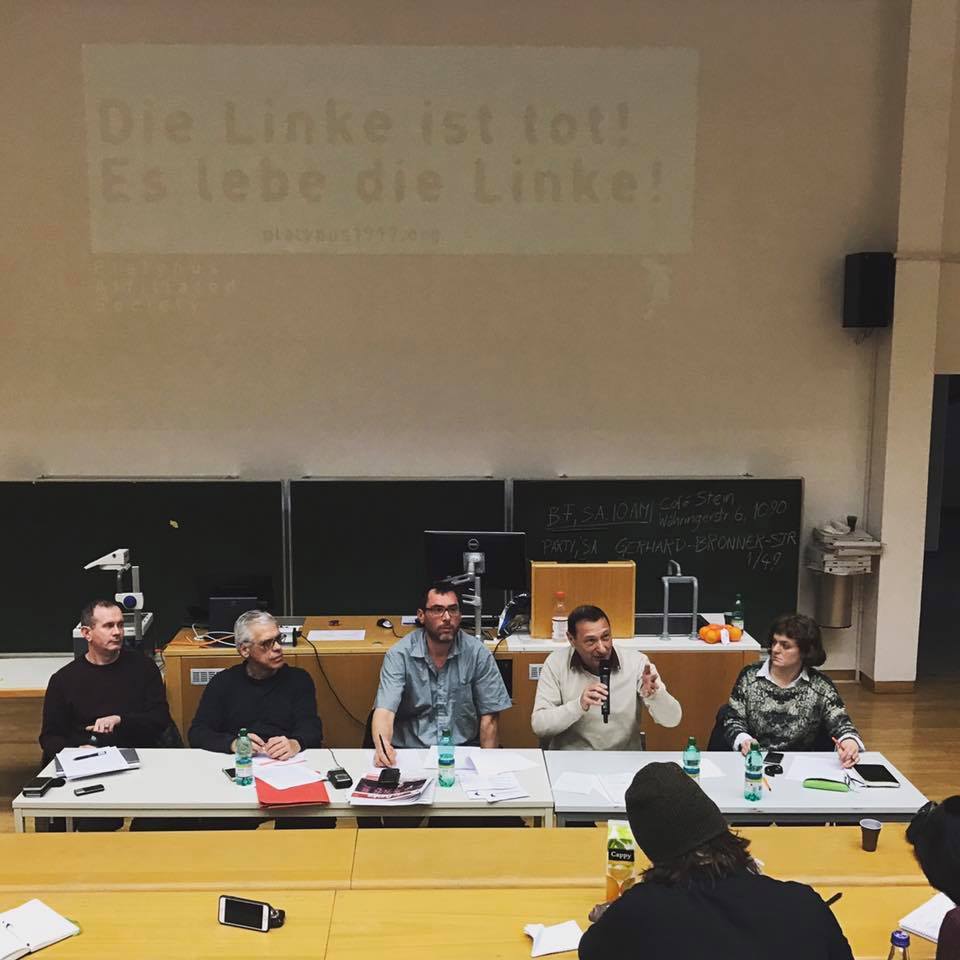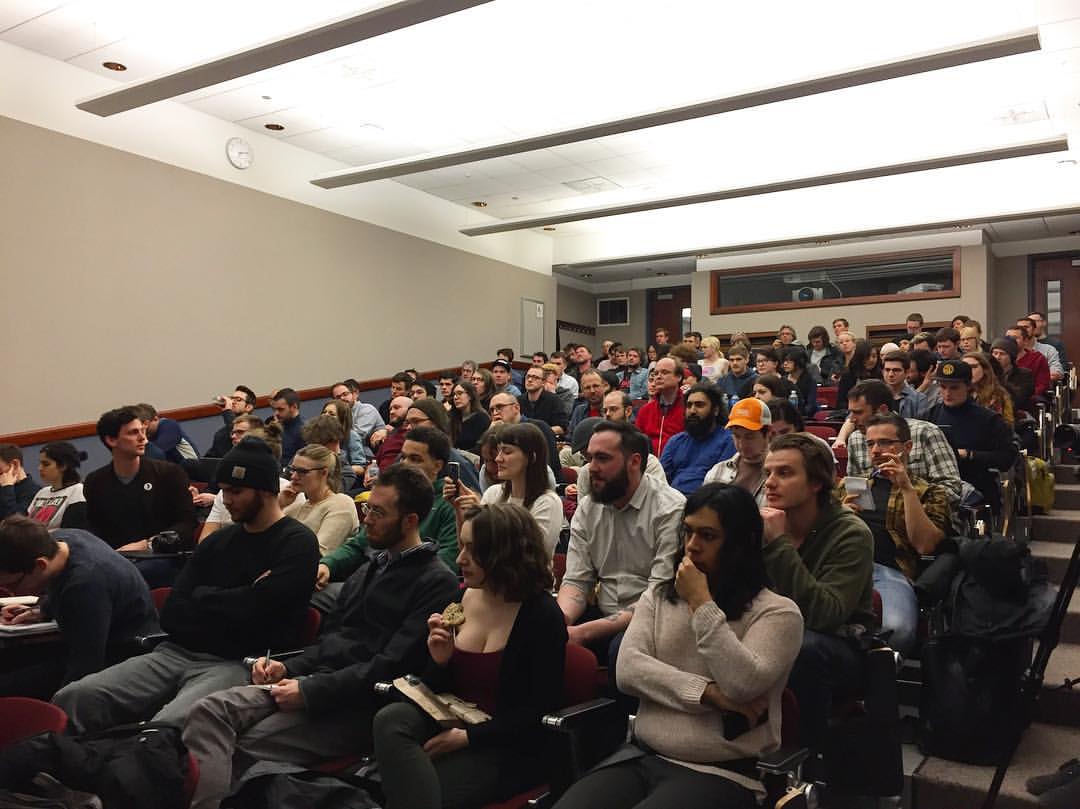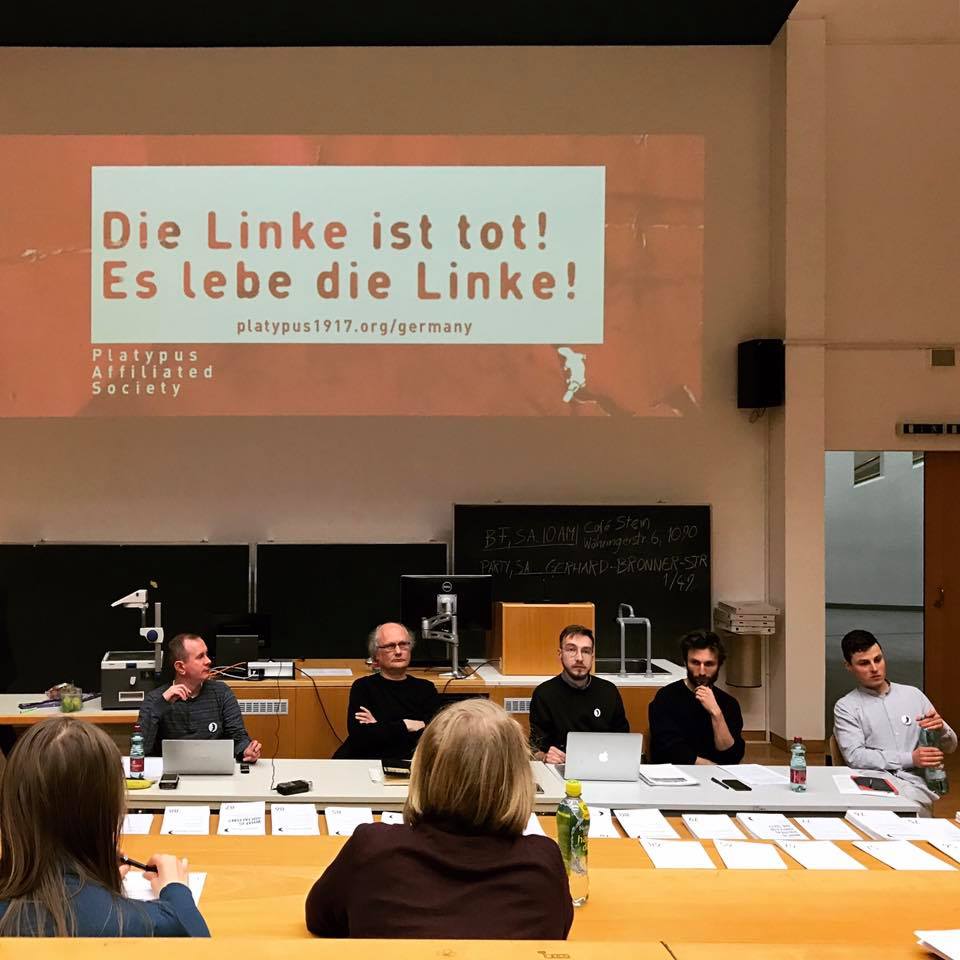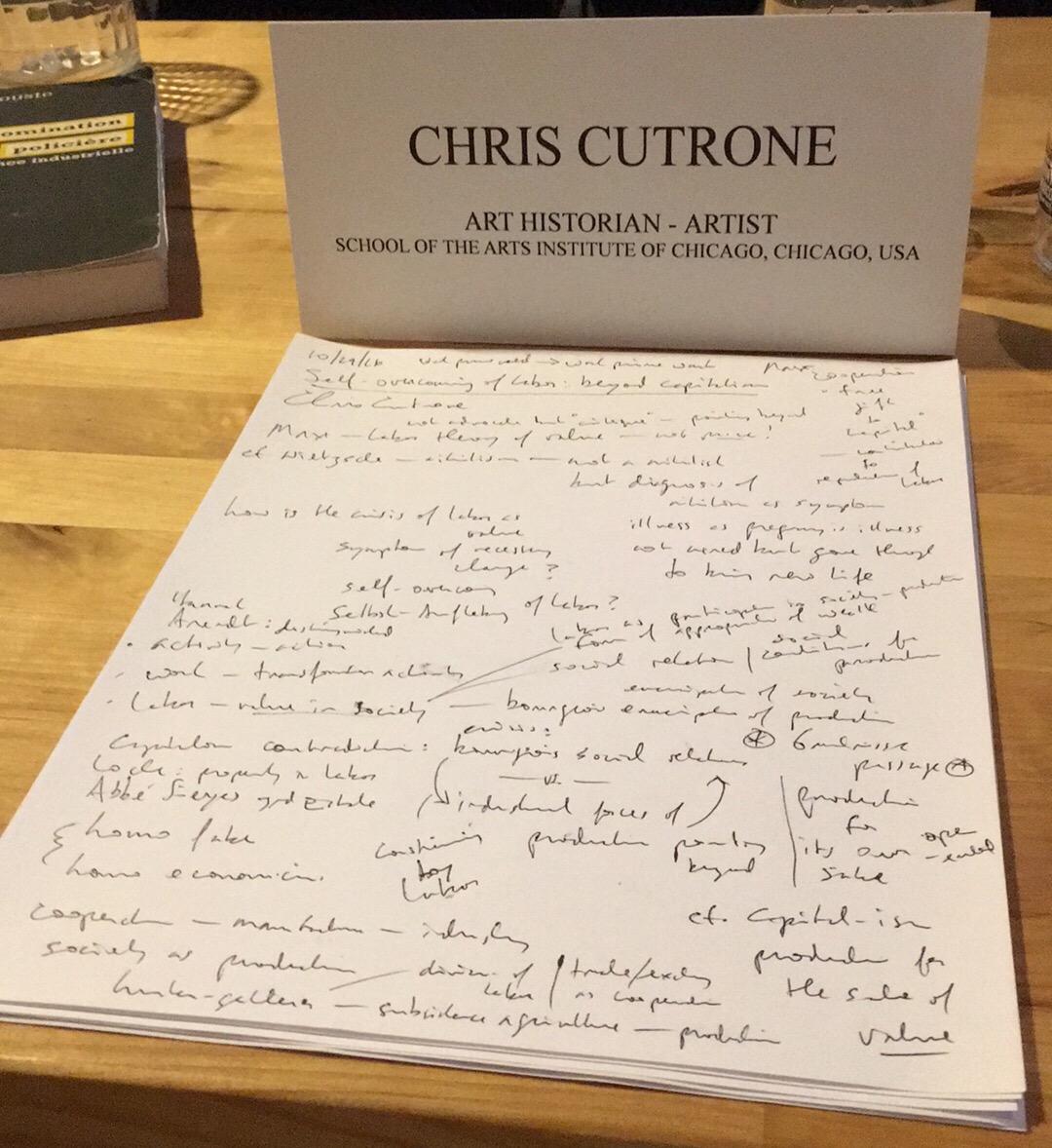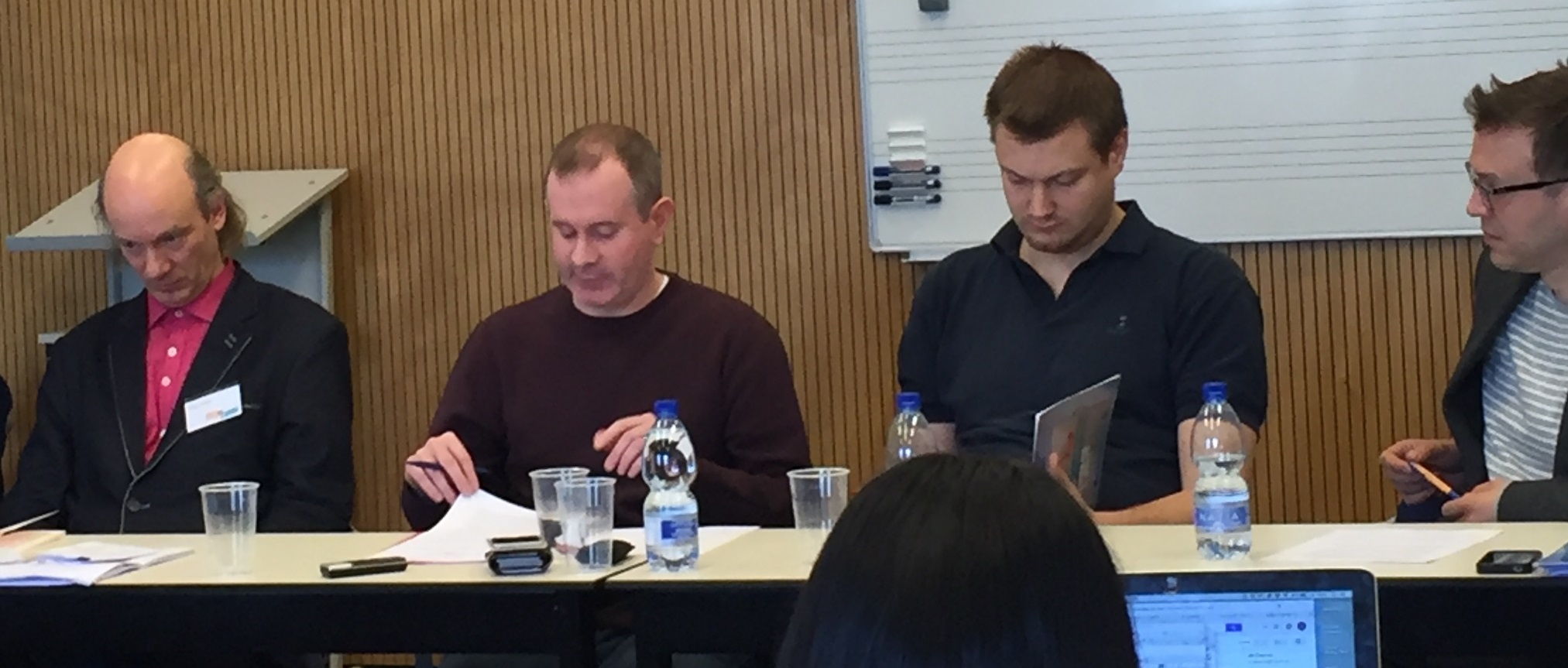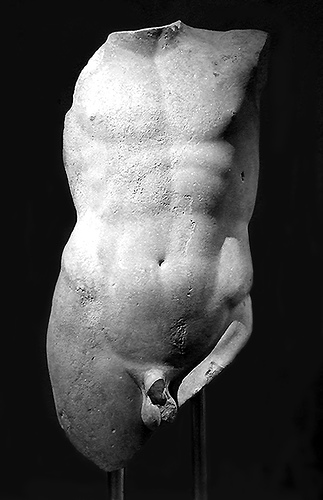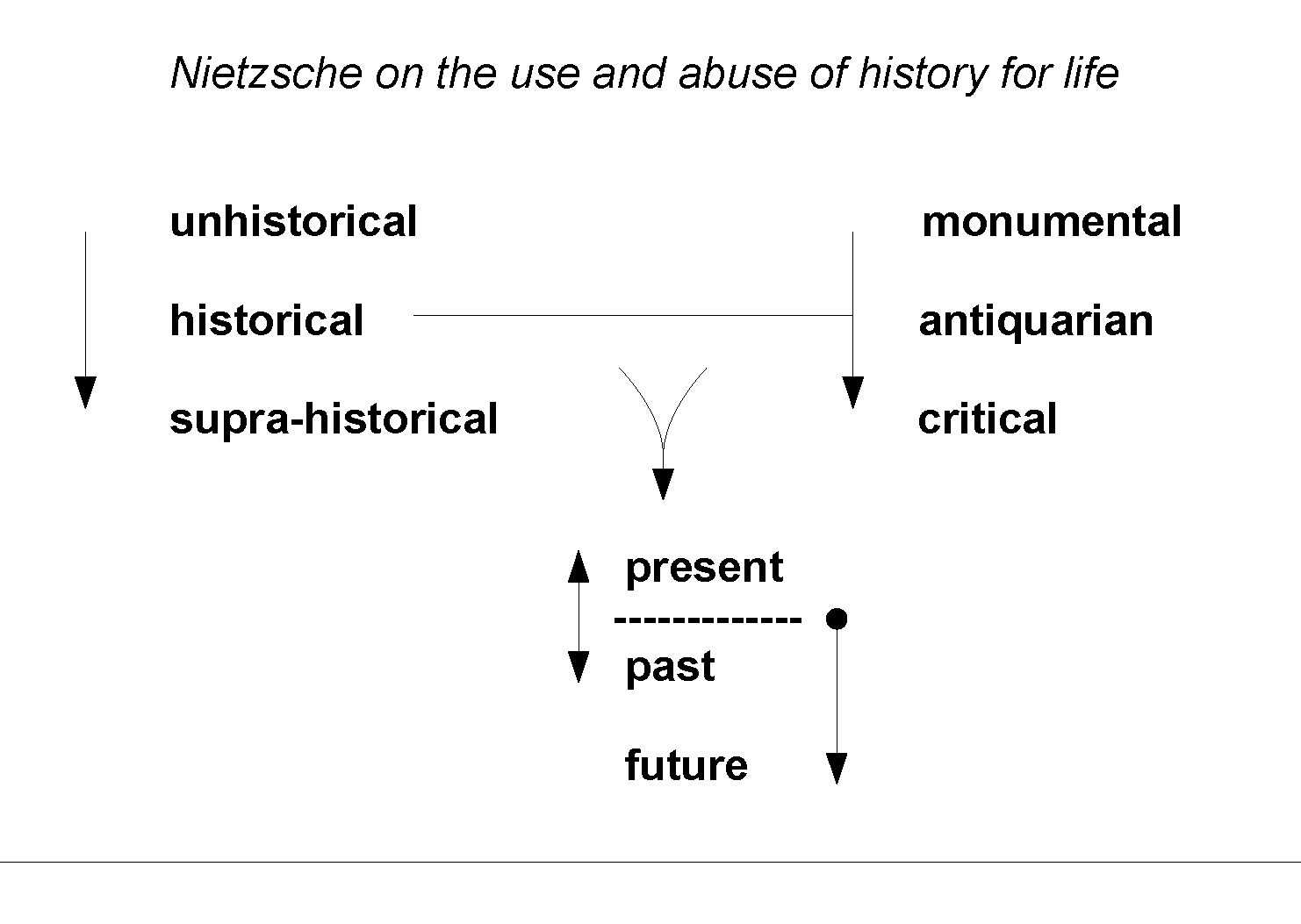Presentation at the 2020 CAA College Art Association conference in Chicago on the panel “Another Revolution: Artistic Contributions to Building New Worlds 1910-30 (Part 1)” with Aglaya K. Glebova and chair Florian Grosser with discussant Monica C Bravo.
Chris Cutrone
The Russian revolutionary leader Leon Trotsky’s book Literature and Revolution (1923) and its critique of the claims of “revolutionary” art at the time was seminal for the subsequent thought of the Marxist critics of modernist art, Walter Benjamin, Theodor Adorno and Clement Greenberg, all of whom addressed socially and politically committed art as varieties of modernism, subject to the same self-contradictions of bourgeois art in capitalism. They took inspiration from Trotsky’s Marxist approach to history in capitalism, specifically his claim, drawing from Marx, Engels, Rosa Luxemburg and Lenin, among others, that the transition beyond capitalism begins only well after the revolution, and that neither revolutionary politics nor ostensible “revolutionary culture” actually prefigure a true socialist or communist society and culture but only exhibit the contradictions of capitalism raised to a heightened and more acute degree. Moreover, modernism as a pathological symptom of capitalism did not exemplify a culture of its own but only a crisis of bourgeois culture that was not a model for a future emancipated culture, but at best was merely a constrained and distorted as well as fragmentary and incomplete projection of capitalism that was authentic only as an exemplar of its specific historical moment.
The history of Marxism is contemporary with and parallels the history of modernism in art. Charles Baudelaire, who coined the term “modernity” to refer specifically to the 19th century, and initiated modernism in both artistic practice and theory, is, like Marx, a figure of the 1848 moment. Modernism in art emerged around this central crisis of the 19th century, namely the capitalism resulting from the Industrial Revolution.
The relationship between modernism and Marxism was a potentially fraught one, however. In the aftermath of the post-WWI revolutionary wave, mostly Marxism became hostile to modernism, describing it as bourgeois decadence — a symptom of the decay of bourgeois society and culture in capitalism. Pre-WWI Marxism had a similar estimation of the culture of advanced capitalism, but less simply derogatorily than the utter condemnation by Stalinist repressive Socialist Realism seen in the 1930s and after. Stalinism regarded modernism as formalist and individualist, and raised earlier bourgeois art as a “Socialist Realist” and Humanist standard against it.
Leon Trotsky, one of the central leaders of the 1917 Russian Revolution, was a Marxist, like Lenin himself, whose sensibilities were formed in the pre-WWI era. Called upon to weigh in on debates within the Communist Party about state patronage of art in the Soviet Union, Trotsky wrote his book Literature and Revolution, which sought to clarify the Marxist attitude towards modern art, especially purportedly revolutionary and even supposedly “proletarian” art. Trotsky was unequivocal that there was and could be no such thing as proletarian art, but only bourgeois art produced by working class people. This is because as a Marxist, the terms bourgeois and proletarian were not sociological but rather historical categories. For Marxism, bourgeois society and culture had been proletarianized in the Industrial Revolution, but this did not produce a new society and culture but rather the proletarianized bourgeois society and culture went into crisis, exhibiting self-contradiction — unlike the bourgeois society and culture that had emerged out of Medieval civilization in the Renaissance.
The bourgeois social culture and art in the crisis of capitalism, like its economics and politics, demanded the achievement of socialism. This was the proletarian interest in modern art: the authentic democratization of culture and art that capitalism both made possible and constrained, giving rise to only distorted expressions of possibility and potential. Modernist art for Trotsky could not be considered a new culture but rather an expression of the task and demand for transcending bourgeois society and culture.
This is the value of art as an end in itself, taking itself as its own end or purpose; hence, l’art pour l’art, art for art’s sake, is an expression of freedom, in both the bourgeois emancipation of production for its own sake and the Humanistic value of life in itself — a value unknown in traditional culture, which elevated morality above life, and subordinated aesthetic production to ritual or cultic community values.
This meant that the history of society, including its transformation in bourgeois emancipation and crisis in capitalism, could find expression in the history of art. The Marxist approach to art is hence primarily historical in character.
Later, towards the end of his life, in 1938, a decade and a half after his book Literature and Revolution, Trotsky wrote a series of letters to the American journal Partisan Review in which the art and literary critic Clement Greenberg first published. In his letters on “Art and politics in our epoch,” Trotsky described their relation as follows — please allow me to quote from Trotsky at some extended length, for in a few paragraphs he sums up well the attitude of Marxism towards art:
“The task of this letter is to correctly pose the question.
“Generally speaking, art is an expression of man’s need for an harmonious and complete life, that is to say, his need for those major benefits of which a society of classes has deprived him. That is why a protest against reality, either conscious or unconscious, active or passive, optimistic or pessimistic, always forms part of a really creative piece of work. Every new tendency in art has begun with rebellion. . . .
“The decline of bourgeois society means an intolerable exacerbation of social contradictions, which are transformed inevitably into personal contradictions, calling forth an ever more burning need for a liberating art. Furthermore, a declining capitalism already finds itself completely incapable of offering the minimum conditions for the development of tendencies in art which correspond, however little, to our epoch. It fears superstitiously every new word, for it is no longer a matter of corrections and reforms for capitalism but of life and death. The oppressed masses live their own life. Bohemianism offers too limited a social base. Hence new tendencies take on a more and more violent character, alternating between hope and despair. The artistic schools of the last few decades – Cubism, Futurism, Dadaism, Surrealism – follow each other without reaching a complete development. Art, which is the most complex part of culture, the most sensitive and at the same time the least protected, suffers most from the decline and decay of bourgeois society.
“To find a solution to this impasse through art itself is impossible. It is a crisis which concerns all culture, beginning at its economic base and ending in the highest spheres of ideology. Art can neither escape the crisis nor partition itself off. Art cannot save itself. It will rot away inevitably . . . unless present-day society is able to rebuild itself. This task is essentially revolutionary in character. For these reasons the function of art in our epoch is determined by its relation to the revolution. . . .
“The real crisis of civilization is above all the crisis of revolutionary leadership. Stalinism is the greatest element of reaction in this crisis. Without a new flag and a new program it is impossible to create a revolutionary mass base; consequently it is impossible to rescue society from its dilemma. But a truly revolutionary party is neither able nor willing to take upon itself the task of “leading” and even less of commanding art, either before or after the conquest of power. . . . Art, like science, not only does not seek orders, but by its very essence, cannot tolerate them. Artistic creation has its laws – even when it consciously serves a social movement. Truly intellectual creation is incompatible with lies, hypocrisy and the spirit of conformity. Art can become a strong ally of revolution only in so far as it remains faithful to itself. Poets, painters, sculptors and musicians will themselves find their own approach and methods, if the struggle for freedom of oppressed classes and peoples scatters the clouds of skepticism and of pessimism which cover the horizon of mankind.”
There are several key ideas to be noted here. To begin with, that Trotsky — that is to say, Marxism — does not seek to provide an answer but rather only to correctly pose the question of the relation of art to politics in capitalism and any struggle for socialism: it is not prescriptive of a solution, but only diagnostic of a problem. That art is a “protest against reality,” no matter whether “conscious or unconscious, optimistic or pessimistic,” still a “protest,” whether expressing “hope or despair” — a very peculiar proposition that would not apply to art before capitalism, or before modernism. Adorno famously characterized art as the “expression of suffering” — also a description specific to the history of art in capitalism. And that art cannot save society — as the revolutionary cultural modernist Bohemians of the Russian Revolutionary era claimed — indeed, it cannot even save itself. Not least because it is a specialized activity on a very narrow base: the oppressed masses live their own lives, from which art is necessarily separated and exists apart.
So what can art do, according to Trotsky — according to Marxism? It can express the suffering of capitalism in which the “intolerable exacerbation of social contradictions . . . are transformed inevitably into personal contradictions,” and hence express a task, the “ever more burning need for a liberating art” expressed by every “really creative piece of work.” Art can express a need — but could not itself satisfy that need. This is the translation of the famous Marxist formulation, that bourgeois society in capitalism stood at a crossroads of “socialism or barbarism,” or, as Trotsky put it, art along with the greater society will “rot away” inevitably under capitalism.
Clement Greenberg’s essay on “Avant-garde and kitsch,” published the following year after Trotsky’s letters on art in Partisan Review, described the barbarization of bourgeois art in capitalism as its “Alexandrianism.” Art in capitalism became instantly transfixed, and, as such, museumified, leading a paradoxical undead existence or only as a spectral after-life of its emancipation in bourgeois society. Georg Lukács, in History and Class Consciousness, published in the same year as Trotsky’s Literature and Revolution, described this greater effect in society as “reification” or thing-ification, as the “spatialization of time,” what Marx called the congealing of human action in capitalism in the form of capital as “dead labor” which dominates living labor. Greenberg described the avant-garde as the attempt to set Alexandrianism in motion, and, as such, imitating the processes of art. Kitsch, in which Greenberg included Socialist Realism, by contrast, imitated the avant-garde, but exhibiting an apparent timeless value, as opposed to the avant-garde’s “superior consciousness of history.” This was modeled on Marxism itself, as the political avant-garde of bourgeois society in capitalism. Marxism distinguished itself from the rest of bourgeois intellectual culture and politics only by its critical historical consciousness, of its fleeting ephemeral specific moment, as Benjamin described it in his “Theses on the philosophy [or, concept] of history,” the “now-time” (Jetztzeit) of revolutionary necessity that “blasts the continuum of history,” to which culture — barbarism — inevitably conforms, as kitsch.
Trotsky’s Marxist assertion that “art is a protest against reality” is based on the earlier bourgeois recognition by Kant and Hegel that art, as Geistig or Spiritual activity, seeks not to express what is, not to affirm what exists, but rather to express what ought to be, the potential and possibility for change: art is the expression of freedom. Greenberg’s avant-garde expresses a fleeting historical potential for transformation that kitsch obviates, neglecting the task of freedom in favor of a timeless naturalization of art. Benjamin wrote in his essay on “The author as producer” (1934) that the task of artists is to teach other artists: as he put it, the artist who doesn’t teach other artists teaches no one. Benjamin called this artistic “quality,” which he distinguished from political “tendency.” Benjamin went so far as to assert that art could not be of the correct — socialist — political tendency if it failed to have formal aesthetic quality. Such quality was primarily educative in value: it demonstrated and educated the potential transformation of aesthetic form itself, for both viewer and producer.
Adorno’s posthumously published draft manuscript Aesthetic Theory — which references Trotsky’s Literature and Revolution as a key departure for his approach — concludes with a criterion for judging the art that lives on in capitalism despite the self-evidence of even its right to exist having been long since lost, that art is the “writing of history” of “accumulated suffering.” Marxism’s essential legacy for considering the history of modern art, especially as consciousness of the condition of failed socialist emancipation from capitalism formulated by Benjamin, Adorno, Greenberg and others in the post-revolutionary crisis era of the 1930s, is this memory of accumulated suffering — the suffering from the unrealized potential of both art and society. | §
